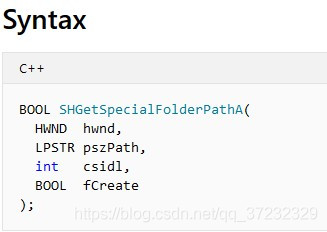priority_queue调用 STL里面的 make_heap(), pop_heap(), push_heap() 算法实现,也算是堆的另外一种形式。先写一个用 STL 里面堆算法实现的与真正的STL里面的 priority_queue用法相似的priority_queue, 以加深对 priority_queue 的理解
#include #include #include using namespace std;class priority_queue{ private: vector<int> data; public: void push( int t ){ data.push_back(t); push_heap( data.begin(), data.end()); } void pop(){ pop_heap( data.begin(), data.end() ); data.pop_back(); } int top() { return data.front(); } int size() { return data.size(); } bool empty() { return data.empty(); }};int main(){ priority_queue test; test.push( 3 ); test.push( 5 ); test.push( 2 ); test.push( 4 ); while( !test.empty() ){ cout < test.pop(); } return 0;} |
STL里面的 priority_queue 写法与此相似&#xff0c;只是增加了模板及相关的迭代器什么的。
priority_queue 对于基本类型的使用方法相对简单。他的模板声明带有三个参数:
priority_queue
其中Type 为数据类型&#xff0c; Container 为保存数据的容器&#xff0c;Functional 为元素比较方式。
Container 必须是用数组实现的容器&#xff0c;比如 vector, deque 但不能用 list.
STL里面默认用的是 vector. 比较方式默认用 operator<, 所以如果你把后面俩个参数缺省的话&#xff0c;
优先队列就是大顶堆&#xff0c;队头元素最大。
priority_queue 对于基本类型的使用方法相对简单。他的模板声明带有三个参数:
priority_queue
其中Type 为数据类型&#xff0c; Container 为保存数据的容器&#xff0c;Functional 为元素比较方式。
Container 必须是用数组实现的容器&#xff0c;比如 vector, deque 但不能用 list.
STL里面默认用的是 vector. 比较方式默认用 operator<, 所以如果你把后面俩个参数缺省的话&#xff0c;
优先队列就是大顶堆&#xff0c;队头元素最大。
#include #include using namespace std;int main(){ priority_queue<int> q; for( int i&#61; 0; i<10; &#43;&#43;i ) q.push( rand() ); while( !q.empty() ){ cout < q.pop(); } getchar(); return 0;} |
如果要用到小顶堆&#xff0c;则一般要把模板的三个参数都带进去。
STL里面定义了一个仿函数 greater<>&#xff0c;对于基本类型可以用这个仿函数声明小顶堆
STL里面定义了一个仿函数 greater<>&#xff0c;对于基本类型可以用这个仿函数声明小顶堆
#include #include using namespace std;int main(){ priority_queue<int, vector<int>, greater<int> > q; for( int i&#61; 0; i<10; &#43;&#43;i ) q.push( rand() ); while( !q.empty() ){ cout < q.pop(); } getchar(); return 0;} |
对于自定义类型&#xff0c;则必须自己重载 operator<或者自己写仿函数
#include #include using namespace std;struct Node{ int x, y; Node( int a&#61; 0, int b&#61; 0 ): x(a), y(b) {}};bool operator<( Node a, Node b ){ if( a.x&#61;&#61; b.x ) return a.y> b.y; return a.x> b.x; }int main(){ priority_queue for( int i&#61; 0; i<10; &#43;&#43;i ) q.push( Node( rand(), rand() ) ); while( !q.empty() ){ cout < q.pop(); } getchar(); return 0;} |
自定义类型重载 operator<后&#xff0c;声明对象时就可以只带一个模板参数。
但此时不能像基本类型这样声明
priority_queue, greater >;
原因是 greater 没有定义&#xff0c;如果想用这种方法定义则可以按如下方式:
但此时不能像基本类型这样声明
priority_queue
原因是 greater
#include #include using namespace std;struct Node{ int x, y; Node( int a&#61; 0, int b&#61; 0 ): x(a), y(b) {}};struct cmp{ bool operator() ( Node a, Node b ){ if( a.x&#61;&#61; b.x ) return a.y> b.y; return a.x> b.x; }};int main(){ priority_queue for( int i&#61; 0; i<10; &#43;&#43;i ) q.push( Node( rand(), rand() ) ); while( !q.empty() ){ cout < q.pop(); } getchar(); return 0;} //以上代码实现的是一个小顶堆 |
转载:http://blog.chinaunix.net/space.php?uid&#61;533684&do&#61;blog&cuid&#61;2615612
ps:如果重载operator > 可直接使用priority_queue







 京公网安备 11010802041100号
京公网安备 11010802041100号